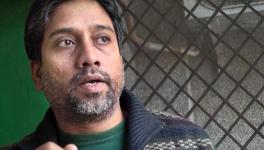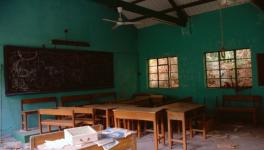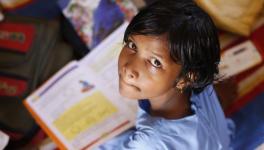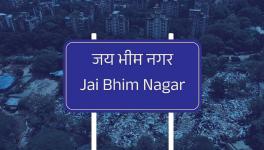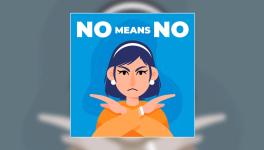Bombay HC to Hear PIL on Visually Impaired Students’ Access to Education
On October 1, the Bombay High Court heard a case filed by the National Association for the Blind which sought better access to education for physically challenged students, especially those with low or no vision, who use Braille to read and write. The National Council for Educational Research and Training (NCERT) sought eight months to make necessary changes in software codes of platforms released during the lockdown to enable online education for such students.
In the Public Interest Litigation, the NAB argued that the e-Pathshala and Diksha platforms, which were introduced by the government for teaching during the lockdown, offering e-textbooks and other teaching-learning material, were not “in conformity with the provisions of the RPWD Act.”
Under the Rights of Persons with Disabilities Act, 2016, which lists 21 disabilities including blindness, low vision and mental illness, every child between the ages of six and 18 with any of these disabilities is entitled to a free education, and government institutions are supposed to offer them “inclusive education”. The Act also lays down penal provisions for a violation of these rights, including imprisonment for up to six months for the first offence, and a fine of up to Rs five lakh and imprisonment for up to two years for any subsequent offence.
The NAB had earlier approached the Ministry of Education and the NCERT – the two respondents in the case – with representations. Having not got a response, it was forced to approach the court.
On October 1, the NCERT argued against admitting the petition, claiming the software is being altered to accommodate these concerns; it sought eight months to redress these problems. The study material is already available in a voice format too, the reply recorded, adding that the Diksha platform had been developed by a private Bangalore-based agency, EkStep Foundation, which still handles the technical aspects of the platform. It is now working on addressing the concerns of blind students, and this is “time consuming,” the reply stated.
Uday Warunjikar, the counsel for NAB, said expertise is at hand which could make relevant changes in the online platforms in eight weeks. He opposed the eight-month time period sought by the NCERT, saying that such a delay could cause many disabled children to drop out of mainstream education.
The HC bench sought details of experts who could make the changes in lesser time, and said the government could be asked to take their help if such a list was provided in court. The bench adjourned hearing in the PILs to October 6.
Meera Badve, the director of Pune-based NGO Niwant Andh Mukta Vikasalaya, said her organisation has not sought government support so far. When she began work out of her own house in 1996, she discovered hurdles blocking the access of blind students in higher education, and concentrated on students who had finished school and needed to continue with their education.
Today, many of those who have studied from her work in the banking and insurance sectors, leading lives not very different from those with vision. Niwant also caters to school children now, and about 200 students are currently taking lessons online. “They access Zoom links and our work continues. In fact, I now wonder why we did not use the online mode much more, even before the pandemic. Our students are spared several hours of travel time, and engage in the online activities with great enthusiasm,” she said.
The NGO uses a software to train students to type on a computer; helping them read is accomplished by voice software. “We can use technology to overcome several obstacles. Our students can now take examinations without the assistance of a scribe. We also have students trained in software who take on projects for Silicon Valley,” she said, adding that material used by Niwant could be translated for use in other parts of the country; her work has catered primarily to students within Maharashtra.
The NAB runs a Braille press that supplies textbooks across the country. Since 1963, it also has a ‘talking book library’ with audio books that the blind can access. It also runs English courses that allow visually challenged children to meld seamlessly into mainstream higher education. If this expertise is properly harnessed, it is likely that software platforms set up by the NCERT could enable visually challenged students to continue to access education.
The writer is a freelance journalist based in Pune.
Get the latest reports & analysis with people's perspective on Protests, movements & deep analytical videos, discussions of the current affairs in your Telegram app. Subscribe to NewsClick's Telegram channel & get Real-Time updates on stories, as they get published on our website.









